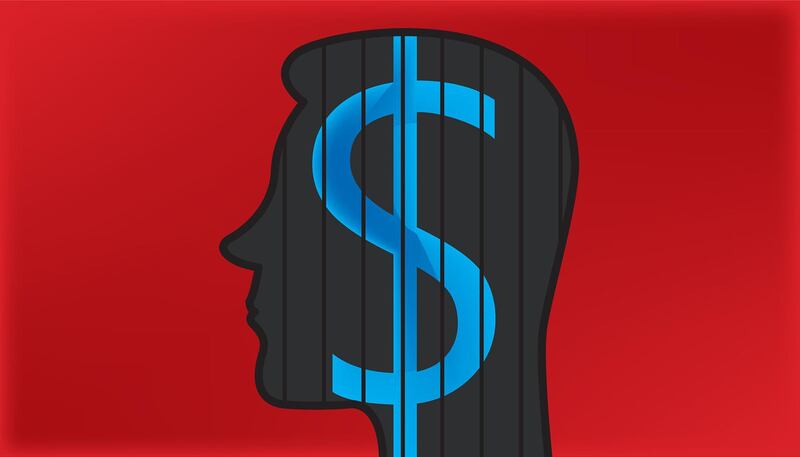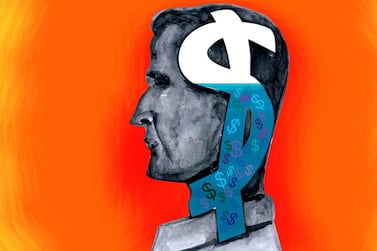I have an issue with a credit card debt I cleared last year. I owed Dh130,000, as the interest was very high — at around 40 per cent — and the balance was increasing even though I was paying it off every month. I’d borrowed the money because my parent’s house burned down due to an electrical fault. To solve the issue, I raised a case against the lender at Abu Dhabi Commercial Court and after the expert issued his report, the judge decided I should only pay Dh30,266 of the amount to clear the card. In July last year the execution file was opened and the court accountant issued a report in September. I then went to the lender, paid the Dh30,266 in cash and was given a receipt. A few days later, I was issued with a clearance letter from the lender. I submitted the documents to the court and the judge closed the file. I was debt free.
I then applied for a loan from a different lender as my father needs a heart operation. When the bank checked with the Al Etihad Credit Bureau, it found my status is “defaulter” on the cleared credit card debt. My credit score is also very low. I asked the previous lender to rectify this, but it refused and said the issue was not from their side. I approached the Credit Bureau, which said it can only amend information supplied by the lender. Once again, I asked the lender to clear my report but they refused and said I did not make all my payments. They also told me this record will be for the next five years. I also approached the Central Bank of the UAE but was told it is not their responsibility.
Please note, since 2016 I made all my monthly payments with the previous lender on time and also for my post-paid phone lines. I am from Jordan and work in Abu Dhabi in the insurance sector, earning Dh11,000 a month. I am single so my monthly expenses do not exceed Dh4,000 — but some of that goes towards my parents as I help them with household expenses and medication. I want to clear my record so that I can apply for a loan as a family emergency. How can I fix this problem? OQ, Abu Dhabi
Debt panellist 1: Shaker Zainal, head of retail banking at CBI
If there is a final court ruling, it must be enforced and Al Etihad Credit Bureau (AECB) records need to be updated to reflect the ruling.
The first thing you need to do is to obtain your up-to-date credit report from AECB, which you can download through their app for a fee. Check and verify that the data is incorrect. You should then follow the data correction/disputes procedures of AECB, outlined in detail on their website: https://aecb.gov.ae/disputes.
You will also need to contact your bank, which can correct and update their records instantly through the data correction tool provided by AECB. There is a link on AECB’s website that allows you to contact your bank (information provider). When contacting your bank, you should attach any documents that support your claim and the data correction message should include a brief summary and your credit report contract ID.
If you are unable to reach a resolution with your bank through AECB's data correction tool, you need to register a dispute with AECB by e-mailing the required documents to disputes@aecb.gov.ae. You have to clearly mention that you had asked the bank to correct the data, but this was not resolved.
Ensure the final court ruling, as well as the clearance letter provided by the bank to you, are attached in your dispute claim email, as AECB needs clear evidence that the record is not correct. You also need to provide all other supporting documents, such as bank statements, payment receipts, contract repayment schedule, or any other relevant documents.
The credit report data dispute form is available on AECB’s website under the “Disputes” section. It would be useful to request prioritisation in your claim, by referring to your emergency-related financing need.
As your financing need is urgent, while your data correction/dispute claim is under processing, you may still apply for a bank loan with all the supporting documents and evidence showing that you had settled the credit card debt case with your bank. However, this is at the discretion of the bank whether to approve or decline your loan request. Since all banks take into account your credit score in their lending assessments, your application is more likely to be successful if you manage to correct your negative credit data before applying for a new loan.
Debt panellist 2: Ambareen Musa, founder and chief executive of Souqalmal.com
Based on the details you've provided, it appears the bank has written off the remainder of your credit card debt (the Dh100,000 that you managed to get waived through a legal settlement) as a loss. The concept of a 'write off' is pretty straightforward; if a bank is unable to collect the full outstanding balance on any debt — loan or credit card — it treats the debt as uncollectible and labels it a loss. A write-off can also happen if the bank settles for a reduced repayment against the original amount due, as evidenced in your case. Based on credit reporting procedures around the world, it is not unusual for this write-off to stay on the credit report for a period of five to seven years.
Though you are off the hook with the actual debt repayment, the catch with a write off is that you will be left with a seriously damaged credit report and credit score. Since your settlement has been categorised under loan default in your credit report, it will raise a red flag when a potential lender views it to assess your creditworthiness. This will make it very difficult for you to access a new loan since you will be treated as a high-risk borrower. Even if you do manage to get your loan application approved, you will have to agree to a hefty interest rate arrangement and unfavourable repayment terms.
You still have the option of seeking legal assistance to help with your case. A lawyer is the best person to tell you whether it's worth pursuing this case.
The other option would be to rely on your personal financial resources and savings to manage your expenses or borrow from friends or relatives if there's a dire need for financial assistance. Avoid loan sharks or illegal money lenders, even as a last resort. Dealing with these private money lenders could land you into a messy financial situation, since they can very easily resort to extortion and threats if you are unable to repay your debt.
Debt panellist 3: Rasheda Khatun Khan, founder of Design Your Life
The cycle of debt can become very foggy if you are stuck in it for a long time. We become reliant on the bank or on others to lend us money and end up living off credit most of our lives, instead of building a financial plan of our own. At some point, however, the banking system will not be able to provide another loan, whether it's because of overexposure, affordability or simply the regulations. As a result, rather than take on more debt, assess your spending behaviour and find another way to finance your father's medical care.
It seems you have control over your expenses, but how are you allocating the remainder of your salary? To build a solid financial foundation for yourself, your disposable income should be allocated accordingly:
1. Build an emergency fund equivalent to three months of your income
2. Build a miscellaneous fund — these are expenses that come up every month
3. Save in cash for the short term
4. Save for the medium and long term
Essentially, the advice is to split up your disposable income to start building savings for the short, medium and long term while also allocating some money for emergencies. Without these money pots, you will always run into debt and face problems when it's not available.
For now, explore other ways to raise the money you need for your father's medical expenses. Ask the hospital if you can pay in instalments or speak to other family members for financial support.
The Debt Panel is a weekly column to help readers tackle their debts more effectively. If you have a question for the panel, write to pf@thenational.ae









